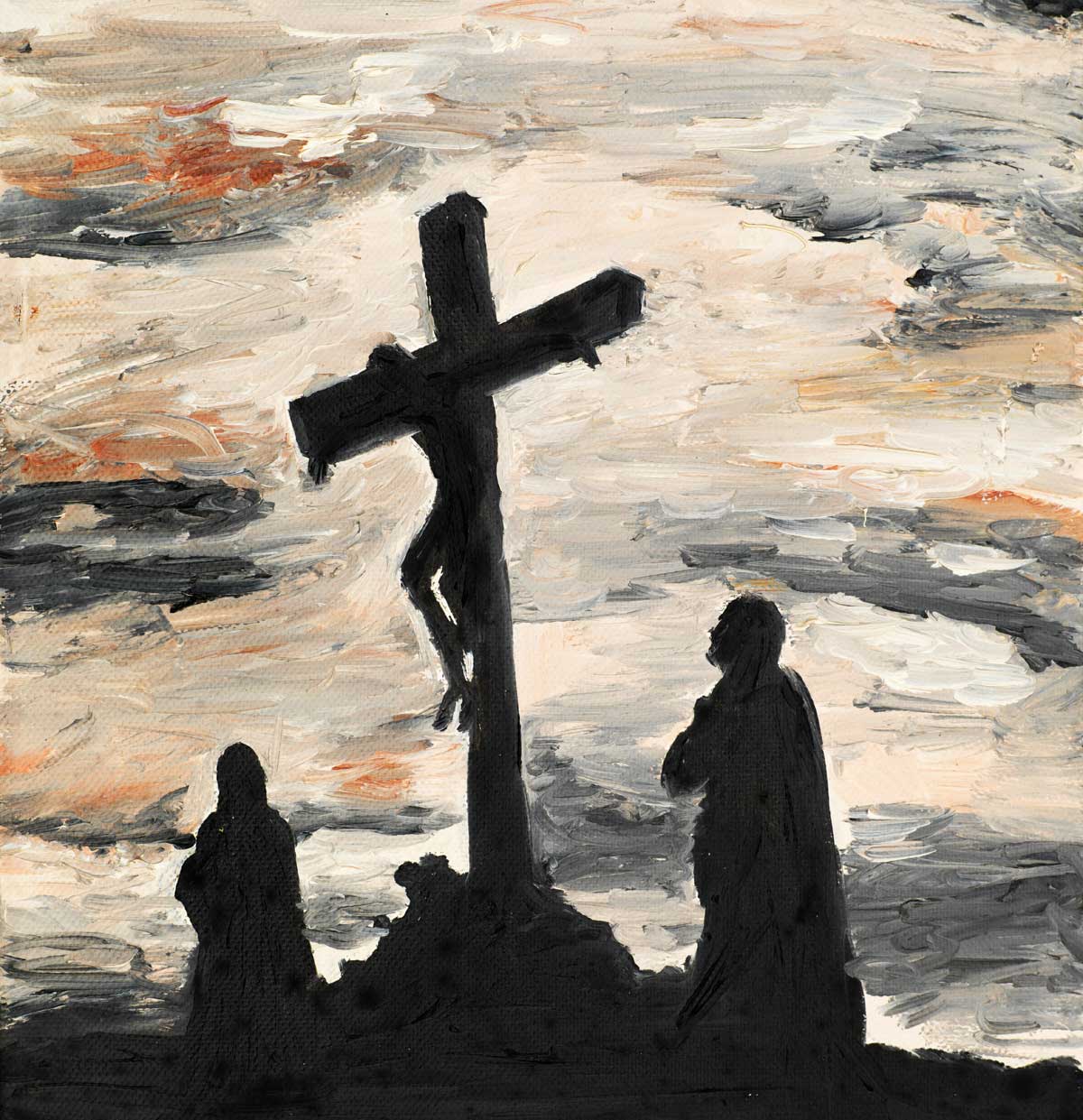James the Just of Jerusalem
Forgotten Saint, Forgotten City
by James M. Kushiner
It is a fluke of history when great men who shape their times are lost in historical obscurity. These ironies occur throughout history, and the history of the Church is no exception. But that such a fate should befall a first rank figure of the apostolic church seems unlikely. He was a man who headed the great mother church of Jerusalem, who was an acknowledged saint whose sanctity and life of prayer and intercession were proverbial, who was regarded with warrant by many in the early church as the font of all episcopacy, who presided over the first Church council, who authored Scripture, and who was as celebrated a martyr as any martyr of his time. Who was this man? Not Peter, not Paul, not John, but James called the Just, of Jerusalem. It is ironical that such a man should be all but forgotten by so many today. And in some of the churches he is so little known that his identity has been confused with that of another James.
The confusion is evident even in the calendar of the Christian year. On October 23, James the Just is commemorated in the Episcopal Church in America and in the Eastern Orthodox churches. The Roman Church has unfortunately confused James the Just with one of the Twelve, James the son of Alphaeus (Acts 1:13), and commemorates him under that name on May 3. But the Eastern churches and this lone Anglican representative do not make this mistake. Consequently, they have assigned a date to James the Just separate from that of the Apostle James, son of Alphaeus. (To keep things straight from the outset, in case you are thinking of another James, there is a third James in the New Testament, one of the Twelve, son of Zebedee, brother of St. John. His death is recorded in Acts 12:2. We are not concerned with this James here; and no one is particularly confused about his identity.)
Was James One of the Twelve?
But just who is this James of Jerusalem, or as he is called in Paul’s Epistle to the Galatians, “James, the Lord’s brother”? Is he outside the circle of the original Twelve Apostles? Most modern scholarly opinion, as well as the majority of ancient traditions, support keeping distinct James the Just, Brother of Our Lord, from James the son of Alphaeus. The biblical evidence seems clear. First James (the Just) either by name or in association with the rest of the Lord’s brothers, is mentioned in distinction from the Apostles (Acts 1:13-14; 1 Cor. 9:5 and 15:7). Second, in the Gospels James is listed as a brother of Jesus (Matt. 13:55; Mark 6:3); but when the lists of the Apostles in the same Gospels are given, James is listed as son of Alphaeus, not one of the Lord’s brothers. Besides, the brothers of Jesus appear in the Gospels to be initially reticent to support Jesus’ ministry. Beyond this, the distinction between the two Jameses is confirmed in light of the evidence from the early Church.
James in the New Testament
The New Testament provides us with glimpses of James and, taken together, these help us gain a sense of James’ importance. A number of things stand out. After Jesus’ resurrection, he appeared to James in a separate revelation (1 Cor. 15:7). James had become the leading figure of the Jerusalem church by the time of James Zebedee’s death (ca. A.D. 44). When Peter had escaped from prison during Passover with the help of an angel and was about to flee Jerusalem, he left word to report his escape “to James and the brethren.” Several years later, at the Council of Jerusalem, James took a strong hand in deciding the matter of requirements for Gentile converts to Christianity: “It is my judgment, therefore…,” and he went on to formulate a policy that became the policy for the whole Church (Acts 15:13ff). James clearly presided over this Council. When Paul visited Jerusalem years later, he “went to…James, and all the elders were present” (Acts 21:18). Speaking of an earlier visit to Jerusalem, Paul stated he received the “right hand of fellowship” from “James, Peter and John” (a listing of names in which James is given precedence). James is the only name regularly connected with the Jerusalem church in this period.
James in the Early Church
The testimony of the early Church confirms James the Just’s position and importance. Hegesippus, a second century Palestinian Christian, who traveled widely and carefully investigated the history of the preceding century, says:
Control of the church passed [from Christ] to the apostles, together with James, whom everyone from the Lord’s time till our own has called the Righteous.
James M. Kushiner is the Director of Publications for The Fellowship of St. James and the former Executive Editor of Touchstone.
subscription options
Order
Print/Online Subscription

Get six issues (one year) of Touchstone PLUS full online access including pdf downloads for only $39.95. That's only $3.34 per month!
Order
Online Only
Subscription

Get a one-year full-access subscription to the Touchstone online archives for only $19.95. That's only $1.66 per month!
bulk subscriptions
Order Touchstone subscriptions in bulk and save $10 per sub! Each subscription includes 6 issues of Touchstone plus full online access to touchstonemag.com—including archives, videos, and pdf downloads of recent issues for only $29.95 each! Great for churches or study groups.
Transactions will be processed on a secure server.
more on church history from the online archives
more from the online archives
calling all readers
Please Donate
"There are magazines worth reading but few worth saving . . . Touchstone is just such a magazine."
—Alice von Hildebrand
"Here we do not concede one square millimeter of territory to falsehood, folly, contemporary sentimentality, or fashion. We speak the truth, and let God be our judge. . . . Touchstone is the one committedly Christian conservative journal."
—Anthony Esolen, Touchstone senior editor











